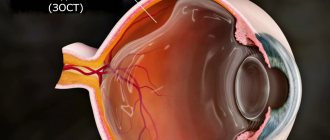Premenstrual syndrome (PMS) is a wide range of symptoms and discomfort associated with the menstrual cycle that often occurs in young and middle-aged women. These symptoms appear 1-2 weeks before menstruation and disappear immediately or 1-2 days after its onset. Three out of four women experience PMS at some point in their lives.
Symptoms of PMS can range from mild to very severe. These changes in physical and emotional well-being can affect a woman's lifestyle and relationships. To help control the impact of premenstrual syndrome on your life, consult a gynecologist who can advise you on various treatment options and lifestyle changes that can help you.
Causes
The causes of insomnia before menstruation are not fully understood. Some scientists believe that PMS occurs in all women, but in some of them the manifestations are mild and unnoticeable. Mild symptoms are not accompanied by deterioration in well-being. Research shows that PMS is more often diagnosed in women with an asthenic physique who are underweight. It is assumed that the following factors are involved in the pathogenesis:
- Endocrine disorders, for example, hypoglycemia (decrease in blood glucose concentration) and other disorders of carbohydrate metabolism, hyperprolactinemia (increase in the concentration of the hormone prolactin in the blood), fluctuations in the level of sex hormones - estrogen, progesterone. An excess of aldosterone (adrenal cortex hormone) and antidiuretic hormone can provoke sleep disturbances.
- Hereditary predisposition. Typically, acute PMS is detected in women whose close relatives suffered from severe manifestations of the pathology.
- Lack of serotonin (the main inhibitory neurotransmitter). Serotonin deficiency increases the sensitivity of the pain perception system - a slight irritation is felt as severe, excruciating pain.
- Lack of microelements (magnesium, calcium, iron), B vitamins, polyunsaturated fatty acids.
The attending physician will tell you why there is insomnia before menstruation, having found out the reasons during a diagnostic examination. Statistics show that PMS is more often detected in women who are engaged in the intellectual sphere of work. The phenomenon is explained by greater susceptibility to mental and emotional stress and stress.
Among the provoking factors are chronic acute stress, a history of mental and gynecological diseases. With PMS, a disturbance in the production of hormones that are involved in the regulation of the luteal phase - serotonin, estrogens, progesterone - is always detected.
PMS - what is it?
PMS is not a disease, but a set of symptoms that are characterized by cyclicity and are closely related to the menstrual cycle. More than 90% of menstruating women are susceptible to PMS, the nature of which has about 100 different symptoms and causes (hormonal imbalance, stress, poor diet).
Premenstrual syndrome, also premenstrual tension syndrome, premenstrual illness, cyclic syndrome (PMS) is a complex cyclic symptom complex that occurs in some women in the premenstrual days (2-10 days before menstruation) and is characterized by psycho-emotional, vegetative-vascular and metabolic-endocrine disorders, which, in turn, negatively affect a woman’s usual lifestyle.
Many studies show that people are sure that in most cases female irritability is caused by PMS. What is premenstrual syndrome in women interests many people. However, in fact, the cause of its occurrence is not always associated with psychological reactions (irritation, nervousness). PMS is a system of vegetative-vascular, psycho-emotional and endocrine disorders that occur after ovulation and before the start of the menstrual cycle. Scientists believe: this condition is a consequence of the maturation of the egg and is always accompanied by a sharp drop in hormones (estrogen, progesterone) in the female body.
Some women may not notice hormonal changes, others feel them, but this does not have a strong impact on the usual rhythm of life. However, there is a category of women for whom hormonal fluctuations are critical, which leads to a sharp and prolonged deterioration in well-being. Most often, “menstrual” symptoms (bloating, headache, fever, irritability, moodiness) are typical for women over 30 years old. Sometimes symptoms can intensify due to age-related changes, for example, with the approach of menopause (perimenopause) - a physiological stage associated with the gradual decline of the reproductive function of the female genital organs.
Clinical manifestations
The severity and nature of the disorders vary among different patients. Symptoms are observed over several hours or days (usually up to 10). Symptoms often worsen as a result of stress. An increase in the intensity of clinical manifestations is typical for perimenopause (the period before menopause, which can last from several months to 4 years).
In women during perimenopause, the duration of clinical manifestations often increases, affecting the menstrual phase. Premenstrual syndrome is characterized by changes in the psycho-emotional background. For women during this period, typical symptoms are: increased irritability, unreasonable aggression, anger, and increased anxiety levels. Typically, insomnia with PMS is accompanied by symptoms:
- Emotional lability (instability, mood swings).
- Depressive state.
- Swelling of the soft tissues of the face and distal extremities.
- Painful sensations in the mammary glands.
- Deterioration in performance, increased fatigue.
- Inability to concentrate.
- Apathy, depression.
An increase in the concentration of the hormones progesterone, estrogen, antidiuretic hormone and aldosterone leads to fluid retention and accumulation in the body. The result is swelling, temporary weight gain, a feeling of swelling and pain in the mammary glands.
There is a feeling of pressure and heaviness in the lower segments of the back and abdomen, and general weakness of the body is observed. Young women are characterized by the development of dysmenorrhea - painful menstruation, accompanied by acute, stabbing or aching pain in the lower abdomen. Nonspecific signs:
- Pain in the head area, dizziness.
- Nausea, sometimes vomiting attacks.
- Paresthesia (burning, tingling sensation) in the extremities.
- Fainting, confusion.
- Tachycardia (increased heart rate).
- Changes in eating behavior (absence or increase in appetite, preference for certain foods).
If a woman cannot sleep peacefully, her state of poor health is aggravated by the lack of proper rest. Nonspecific signs include neurodermatitis (skin disease of allergic and neurogenic origin), skin rashes mainly in the facial area.
PMS is typically characterized by a worsening, exacerbation of the course of diseases - dermatological, respiratory system (allergic reactions, asthma, infectious lesions of the respiratory system). If insomnia before menstruation and other symptoms of PMS persistently occur in the 2nd half of the cycle, this may be a manifestation of a dysphoric disorder caused by hormonal imbalance.
Symptoms typical of PMS in dysphoric disorder disappear after the end of menstruation. Dysphoric disorder is characterized by a sharp decrease in mood, severe anxiety, irritability, short temper, and emotional lability. Episodes of sudden sadness and outbursts of anger, attacks of causeless anxiety and tension are typical.
Usually during this period there is an escalation of conflicts in the family and work team. Often, against the background of dysphoria (decreased mood), suicidal thoughts arise. Patients lose interest in the surrounding reality. Unlike mild forms of PMS, dysphoric disorder complicates a woman’s daily activities and professional activities and worsens social adaptation.
What are the causes of insomnia and anxiety during PMS?
The main and most important cause of sleep disturbances a few days before the onset of menstruation is hormonal changes. I will not burden you with chemical and biological details of the processes occurring in the body. It’s better to tell you what clinical picture this produces.
Thanks to a short description of the clinical picture, you will easily understand why sleepless nights occur so often during PMS.
Premenstrual syndrome comes in varying degrees of severity; both the physiological state of a woman and her emotional state depend on this degree. The quality of your night's rest also depends on this.
Diagnostics
The diagnosis of PMS is made based on the medical history, the patient’s complaints, and the results of a diagnostic examination. Diagnosis of poor sleep before menstruation is carried out as part of a comprehensive examination. Polysomnography is a method for determining sleep parameters. The study reveals breathing disorders during sleep (night apnea), snoring, eye movements, and pathological motor activity.
Polysomnography also shows the concentration of oxygen in the blood, the tone of the facial and cervical muscles. Differential diagnosis is carried out in relation to pathologies that manifest similar symptoms (hypothyroidism - decreased concentration of thyroid hormones, anemia, autoimmune reactions, mental illness).
How to treat PMS?
Contact your gynecologist to relieve your PMS symptoms. The doctor will tell you how to deal with unpleasant sensations before menstruation and not harm women’s health after collecting an anamnesis and gynecological examination of the patient. Based on the examination results, the doctor makes a diagnosis of PMS. The gynecologist gives an explanation of the regimen for taking prescribed medications. Do not self-medicate so as not to worsen the situation.
To treat PMS use:
- medications (painkillers, antidepressants, diuretics);
- hirudotherapy (treatment with leeches);
- aerobic physical activity (cardio exercise), in which oxygen serves as the source of energy to maintain muscle function;
- diet (gradual transition to a healthy menu, avoiding excessive consumption of caffeine, salt and sugar two weeks before the start of menstruation).
Anecdotal research suggests that certain vitamins and minerals may help relieve menstrual discomfort. These include calcium, magnesium, vitamin B6, polyunsaturated fatty acids (omega). However, the Food and Drug Administration (FDA) does not recommend unauthorized use of vitamin complexes and supplements, as this can cause menstrual dysfunction. Before taking them, you should consult your doctor.
You also need to give up bad habits (smoking, drinking alcohol), avoid stressful situations, yoga and meditation, massage are recommended. According to the study, women who smoke reported more PMS symptoms than non-smokers. Problems in the family and at work, lack of sleep, and restless sleep can aggravate the situation. Women's periods should be regular and not cause significant harm to women's well-being and health. A gynecologist will help solve problems with the menstrual cycle and prevent dysfunction of the ovaries and other female genital organs.
1
1
6
Article rating:
5 out of 5 based on 7 ratings
Author: Filatova Tatyana Sergeevna
Obstetrician-gynecologist. First category. Work experience over 18 years.
Spotting before menstruation
Spotting before menstruation, as a rule, is not a sign of serious disorders. But it is still worth knowing the factors causing this phenomenon. It is also necessary to consult a doctor if the situation recurs.
Often a woman smears brown before her period, two days before it starts. This is normal and should not be a cause for concern.
If you are still a week before your period and you have brown spotting, this may be a sign of pregnancy (implantation bleeding). If you experience such sensations, take a pregnancy test and contact an antenatal clinic.
Also, spotting before menstruation may indicate the formation of cervical erosion. Many medical experts consider this disease a prerequisite for the development of cervical cancer. This disease has virtually no symptoms, and only a doctor can determine its presence.
Does it apply before menstruation? Perhaps the reason is due to the use of hormonal contraceptives. They often cause disruption of the monthly cycle. In this situation, you should contact your gynecologist; you may need to take a break from taking these medications or choose another drug.
Green mucous discharge before menstruation may be signs of purulent cervicitis. If these symptoms occur, do not delay your visit to the gynecologist.
Ways to combat insomnia before menstruation
First of all, with insomnia, it is necessary to find out the cause of this condition, especially if there are any specific complaints. If sleep disturbance is just a psycho-emotional disorder, you can try to improve sleep, including changing your lifestyle, diet and using traditional medicine.
Traditional medicine for insomnia
Traditional medicine offers many different ways to combat sleep disorders. Popular and effective ones include the following:
- Honey _ It is recommended to take the beekeeping product at night. You can use kefir - two tablespoons per glass.
There is also an option with lemon juice and walnuts - mix two tablespoons of honey with the same amount of nuts, add lemon juice.
- Valerian . You need to take the root of the plant, chop it and take two tablespoons. Pour 500 ml of water at 100 degrees, let stand for about half an hour. Take a tablespoon 30 minutes before bedtime.
- Dill . You need to take 15 g of fresh plant and pour 500 ml of boiling water. Leave for at least 8 hours. Take in equal portions throughout the day.
- Soothing tea . You need to take 20 g of lemon balm leaves, 30 g of motherwort and valerian root. Pour water at 100 degrees, leave for a day and then take 40-50 ml orally.
Watch this video about traditional methods of treating insomnia:
Traditional medicine
Modern drugs that can be used to normalize sleep include drugs from different groups. Among the most effective are the following:
- Sleeping pills . They can only be purchased with a doctor's prescription. Only a specialist can select the required group of medications and establish a safe dose. Among the popular ones are Somnol and others.
- Herbal remedies . There are a large number of tinctures and herbal preparations to improve sleep. St. John's wort can be seen especially often in the composition. As a rule, they have a mild sedative effect - Deprim, Novopassit, Valocordin and others.
- Magnesium based . It is believed that magnesium relaxes the nervous system, smooth muscles of all internal organs and thereby improves sleep. The imbalance of microelements in the second phase of the cycle in women is especially relevant. Therefore, taking magnesium supplements can significantly improve sleep quality.
It is convenient that such medications are sold in pharmacies without a doctor’s prescription, for example, Magnesium B6, Magnefar, Magnelek and others. They can be in the form of tablets, capsules or powder for oral administration.
- Based on trypotophan . This substance is essential for normal sleep. Tryptophan produces melatonin (during the day) and serotonin (as darkness falls). The latter is necessary for normal sleep. Therefore, the room should be as dark as possible. Over the years, the level of melatonin synthesis decreases, and the balance is also disrupted in those who work at night. Such people can take medications based on tryptophan - Melason, Tryptophan and others.
General recommendations
You can improve your sleep quality without taking medications. The recommendations in this case are as follows:
- You should avoid foods and drinks that stimulate the nervous system - coffee, sweet, strong tea, salty foods, etc. If it is difficult to completely eliminate it from the diet, you should at least not consume it in the afternoon.
- Include more foods in your menu that are sources of magnesium and tryptophan. These are bananas, nuts, milk, buckwheat, dates, beans, apples and others.
- Make it a rule to take evening walks in the fresh air and ventilate the room before going to bed in any weather.
- Make sure that the room temperature is no higher than 22 degrees, and the humidity is at least 40-50. Otherwise, uncomfortable sleeping conditions are created.
- Choose a pillow, blanket, mattress to suit you.
- Before going to bed, you can conduct an aromatherapy session with soothing oils - lavender, mint, etc.
- It is important to follow a routine - go to bed at approximately the same time.
- Lead an active lifestyle with a high level of physical activity.
We recommend reading about how premenstrual syndrome manifests itself. From the article you will learn about why PMS occurs, symptoms and diagnosis of the condition, and medications for treatment.
And here is more information about why you want to eat before your period.
Sleep disturbance is one of the common causes of poor health and decreased performance. They occur especially often in women in the second phase of the cycle. First of all, you need to analyze your condition and try to find out the cause of the disorder, and if necessary, consult a doctor. In most cases, insomnia can be dealt with by changing habits, lifestyle and diet, and taking simple and affordable medications.
Breasts before menstruation
Before ovulation, the amount of epithelium in the lobules and ducts of the mammary glands increases. Blood begins to flow to the breasts in a larger volume, as a result of which the mammary glands become slightly larger and swell, their sensitivity increases, and pain appears. According to medical experts, these symptoms in a healthy woman are usually mild and do not cause her severe discomfort.
In addition, chest pain is associated with the proliferation of glandular tissue before menstruation. If fertilization does not occur, the glandular tissue atrophies, and when menstruation ends, all unpleasant sensations disappear.
Breast pain, week before period? If the pain is not severe, this is not a deviation from the norm. But the causes of severe and persistent chest pain can be:
- oncological diseases;
- taking antidepressants;
- hormonal imbalance;
- mastopathy;
- taking hormonal drugs.
If you experience severe chest pain before your period, be sure to see a doctor.











